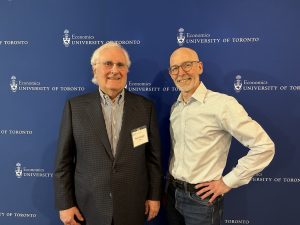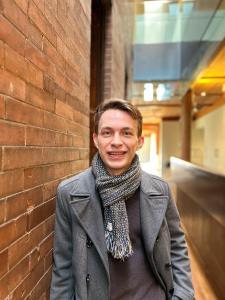
Rose Zhang graduated from the Department of Economics, University of Toronto in June 2023. She is now an MSc student at the London School of Economics.ECO499, Honours Essay in Applied Microeconomics, is a course that enables students to complete an original research paper on a topic of their choosing. The topic must be microeconomic and applied, meaning all papers will involve data and quantitative (regression) analysis. Rose’s paper was awarded the Arthur Hosios Scholarship in Economics for best paper submitted during the 2023-2023 academic year on 6 March, 2024.
Established by the family and friends of the late Professor Arthur Hosios, the scholarship is held by one or more students on the basis of an original research paper that the applicant submitted as part of the requirements of a 300 or 400 level Economics course taken at the University of Toronto (St. George campus), for which the applicant received a credit. The applicants’ work is evaluated based on originality and presentation. There are two awards – one each for the winning and second best paper.



